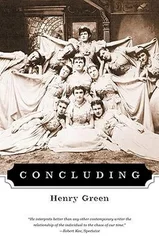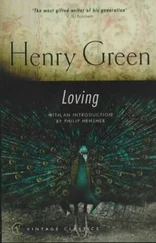“Never even crossed my mind,” he answered.
Mrs Grant came down, soon after. And for the rest of the time, before he went to catch his train, he sat in a peaceable daze, while the two women lovingly talked of Mr Grant.
Nancy stayed on at Mrs Grant’s after the funeral, and he went down there every Sunday. He loved her, although he did not say so, or even show it, while she, for her part had made up her mind that she would marry him.
He lived quietly and hopelessly on, convinced that no girl would ever look at him, because he was too slow. He did nothing about her. He was content to bide his time, and so was she.
Mrs Grant, who remained steadfast and kindly, often prodded Nance about Charley. It was the one point on which they disagreed, that she would not declare herself to the old lady about him. Nance turned it off by asking what Mrs Grant would do if left alone. The answer made, was that ‘mother’ could go live with a niece in the Midlands, a schoolteacher. To which Nance would object that, surely, she did not wish to give up her lovely home. Indeed, with what Nance, who had gone back to work, contributed each week, and with the insurance money, it was easy for Mrs Grant to keep things going.
Nancy’s real mother wrote, from where she was evacuated, to hint that she had in mind to marry again.
When Charley was down, the two younger people would go out in the evening if it was fine, and, before they came back, they would kiss a bit. This made him more miserable the rest of the week, when he had the leisure to remember. But she never kissed him indoors, after Mrs Grant had begun to press her.
They called each other dear. And, once he had begun really to love Nancy, he did not sit with Mrs Frazier in her room any more, which turned this lady against him.
Nancy could not forget her dead husband Phil, but she gradually came to feel about him less often, and to wonder about Charley more. Where the airman had always been gay, and on his own until his last leave, when they had been married, Charley was so helpless that she wondered how he held his job down. In a way she was waiting for him to lose it. She did not express this to herself, even, but she might have been seeing whether he could support himself, also whether he had really and truly got over Rose, which had been such a business when Father first put them in the way of each other, and it had all been so dreadful.
But what she liked about Charley was how he did not ask for anything, however small, although his need was desperate, a child could tell it. He was so trusting, she felt, that she came to trust him.
After a time she believed he was very reserved, and respected him for this. Yet she realized the war had injured him. Really what intrigued her was, that she did not know if he didn’t, or just couldn’t, tell about himself, tell even something of all that went on behind those marvellous brown eyes, which had so humbly implored her when she came to announce that Mr Grant was gone, which had so often begged her since, which told her she was needed as she could never be by almost anyone, that more than anyone in the world, now they had killed Phil, it was Charley Summers who must have her.
Accordingly, some time in November, she made up her mind she’d do it. But she said nothing. She waited. Then old Ernie Mandrew sent another sad sort of note about Phil, and asked her to stay over for Christmas, to bring a boy if she liked. She saw this was her chance. She put it to Charley.
She asked what he had planned to do over the holiday. Suspecting nothing, Charley said he did not know. Then she suggested that he should come along, in almost exactly the same words he had used to Dot Pitter, on a previous occasion. The two times seemed so alike he was terrified, so much so, that she saw almost how terrified he could be, and her heart fell. But she had made up her mind, and she had to go through with it.
He produced a perfectly genuine reason against the visit. He objected that Ernie Mandrew, with all his domestics, was too much, altogether, and that the man must be in big business. She said, why didn’t anyone ever inform you, he’s a bookie. But Charley was very suspicious. He wanted to be told how she had got to know Mr Mandrew. She was patient. She explained that her Phil had worked for him, in peacetime. It still looked to Charley like a trap, he did not dare think what for. Next he asked if Middlewitch was to be present. She replied that she thought she must have explained how Arthur was out, that poor Arthur had been betting, and couldn’t pay up. Betting with a firm that size, Charley asked. She told him the truth. With someone else’s money, she said.
“So you will, Charley Barley, won’t you?” she ended.
“I might,” he said, feeling sick.
This afternoon of Christmas day, down at old Ernie Mandrew’s, she took Charley out, determined by hook or by crook to bring him to the point at last, for, however little she knew about his intentions, her own mind was still made up.
“Would you ever want to have children?” she asked, as they set off together over the snow, on the way to the village. This made him think of Ridley, whom he had not considered in a long while.
“Why?” he said.
“Oh, why does a person ever put a question?” she gently enquired. “To get their answer, of course, you old silly.”
“I don’t know.” He still did not realize that they might come on the boy when they reached the first houses, and he was not to know this until it was too late.
“Come on,” she insisted. “Having children’s one of the few things anyone can do for herself in this old world, that is if she can rake up a boy to do it with,” she laughed.
“Would you?” he asked.
“We’re not talking of me, this instant minute, thanks,” she replied. “Why won’t you ever tell me anything?”
“I might have one already.”
“Go on,” she said, laughing still. “Why, you’ve never been wide awake enough for that.”
“I might,” he insisted.
“Charley, I really do believe … No, look here, you haven’t, have you, now?”
He did not answer, or even glance at her.
“You said it in such a way that you might at that …” she went on, when he said nothing. “But, Charley, it would be living a lie.”
“How d’you mean?”
“Well, wouldn’t it?”
“I still don’t get you,” he cautiously explained.
“Why, being like me,” she elaborated. “Not having a real father all my life. That’s been my trouble. Oh it mightn’t matter for a boy, but it’s very different where girls are concerned.”
“Rotten luck,” he said.
“No, Charley, you never did, did you?”
“What would you give for me to tell?”
“But this is serious,” she entreated. “You can’t play about with this. It’s all there is that people the same as us can do with their own lives.”
“A man never knows if the kid is his own, or not.”
“Now there’s no need for you to be sarcastic,” she protested. “I haven’t brought you all this long way for that,” she said, with more truth behind the remark than she proposed to reveal. “Can’t you be serious, once in a while,” she begged, although he was the most serious of men.
The snow, and the sun above, lit her face so that each eyelash stood out on its own, and the grain of her skin, until, with those blue eyes, and the way she had of addressing him, on which he had come to rely for peace of mind, and with her walking by his side, she grew upon him, became an embodiment of everything comforting, and true, and good. So much so, that he lost the drift of this argument. She had to press to get him to say he did not really know if he had a child.
“But who with?” she demanded. She was getting upset.
Читать дальше












